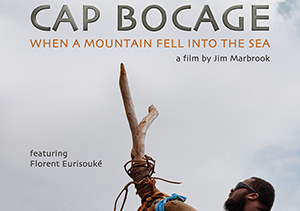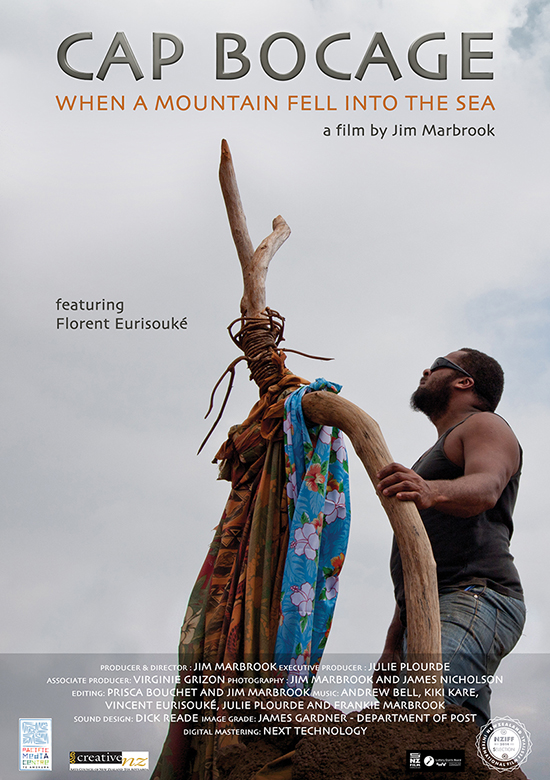
AUCKLAND (Pacific Media Watch/ NZ Film Festival): The long-awaited documentary about mining and the environment in New Caledonia, Cap Bocage: When A Mountain Fell Into The Sea, will have its premiere at the New Zealand International Film Festival today and also be screened tomorrow.
Jim Marbrook, director of Mental Notes and the original Dark Horse documentary and an AUT University television and screen production lecturer, investigated a long environmental campaign that followed the pollution of traditional Kanak fishing grounds in New Caledonia in 2008.
The 74-minute documentary in French with English subtitles and also two sections in an indigenous Kanak language, Aije, is a devastating exposé on how mining companies operate in the Pacific.
The documentary has been supported by Creative New Zealand, New Zealand Film Commission and the Pacific Media Centre and features Kanak environmental activist Florent Eurisouké.
In a message to colleagues before the screening, Marbrook said: "It has been a labour of love for me, following a small Kanak/Melanesian community as they deal with a landslide from a nickel mine in their community.
"It’s been a privilege to work with this tribe in Ba and the final product of this six-year filming journey will have specific resonance to environmentalists and to other Pasifika communities who are also wrestling with ideas of independence, the environment, and the delicate balance required when weighing up the effects of commercial mining operations and the community good."
At Cap Bocage in New Caledonia in early January 2008, heavy rains washed toxic sludge from the hilltop nickel mines into Kanak customary fishing grounds below.
Coastal village people testify that it’s the dramatic culmination of a slow and steady pollution that’s been going on for 30 years.
Aucklander Jim Marbrook’s documentary follows independence activist Florent Eurisouké as he and the environmental organisation Mèè Rhaari take on the mining company, Ballande.
Refusing any compromise, Mèè Rhaari demands repair and restitution. It’s a drawn out struggle, punctuated with judicial interventions and court-appointed environmental reports.
Every delay favours Ballande as time and tide gradually disperse the spill into the ocean; meanwhile, Mèè Rhaari can act only with the endorsement of the traditional council leaders.
Divisions grow between Eurisouké and the "realists" among the elders. Their pragmatic accommodation to life with Ballande is openly admitted, but the details are, significantly, kept off camera. The charismatic Eurisouké constitutes a dynamic force field in Marbrook’s telling picture of a French Pacific territory deeply divided on the issue of independence.
NZ International Film Festival screenings
Auckland's Academy Cinema, July 22, 6.15pm
July 23, 11.30am
This work is licensed under a Creative Commons Attribution-NonCommercial 3.0 New Zealand Licence.





